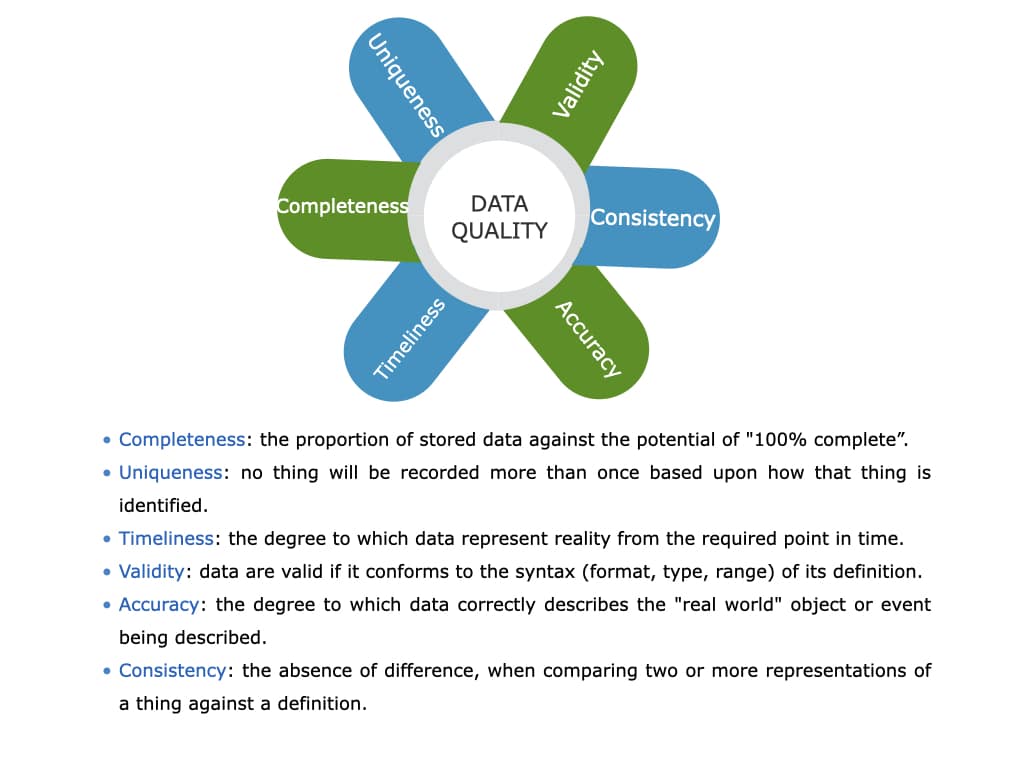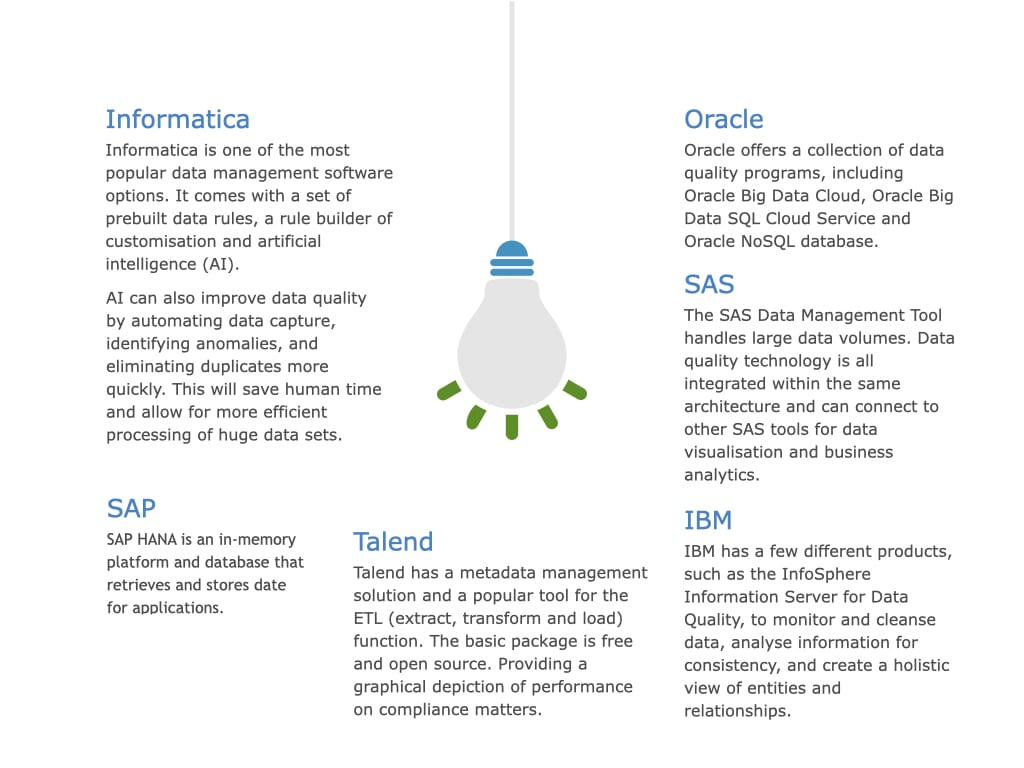The following statement is more relevant than ever in these unprecedented Corona-times; without high-quality data, you are at a loss. If you turn on the news, data is being presented in order to inform us on the current status of the pandemic. On a daily basis we see proof of the criticality of data in making informed decisions and how inaccurate data can lead to disastrous consequences.
Good management of data quality builds a foundation for all the initiatives of a business (and beyond). In order to achieve high quality data, it is necessary to make this a holistic, continuous improvement process.
Research shows that generally six core dimensions of data quality can be distinguished:

Other data quality considerations, might be useful to make. As there are additional factors which can have an impact on the effective use of data.
The following questions might help:

Zooming in on the life science industry; the basic building blocks of good GXP data are to follow Good Documentation Practices and then to manage risks to the accuracy, completeness, consistency and reliability of the data throughout their entire period of usefulness ; that is, throughout the entire data life cycle.
The FDA expects data to be meaningful, taking into consideration the design, operation, and monitoring of systems and controls based on risk to patient, process, and product. In addition, FDA expects the data to be reliable, including a demonstration of integrity, validation, safety, identity, strength, quality, and purity, reproducibility and so on.
Useful questions to ask yourself in order to meet regulatory requirements;

With advances in technology, there are many tools that organizations can use to improve data quality. These tools often perform three main functions:
- data cleansing
- data auditing
- data migration
Depending the needs and preferences of the organizations the choice of technology is being made; cloud-based versus on-premise, compatibility with different sources, integrations with other platforms, complexity of data sets , etc.
Implementing data management technologies can help companies to;
- reduce organizational costs
- increase workforce efficiency
- increase productivity,
- make faster and more knowledgeable business decisions,
- recalibrate business strategies
- improve organizational consistency,
- support greater collaboration and communication.
Some popular technology services include:

Defining a data management strategy is central to the success of any enterprise. It is the ‘secret ingredient’ behind how we use and secure information, ensure compliance, operationalise transparency and reduce expenses. Using technology at our disposal today, can make this task much easier.
Stay tuned as Pinnaql will soon launch one of its own innovative technologies, using the entire spectrum of data science that guided us to add valuable support to human functions and automate processes.
